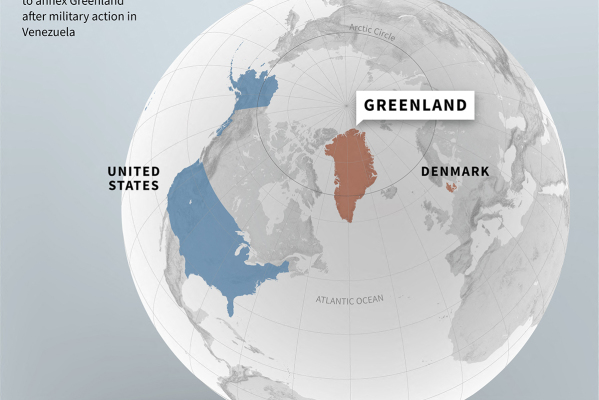Cultivating contentment in a covetous culture
Coveting may not be a word we use a lot today. It means the uncontrollable desire to acquire. The concept of wanting what is not ours is well known. In fact, the problem the tenth commandment addresses are so familiar, it is expressed in popular sayings:
The grass is always greener on the other side.
God made us a little lower than the angels, but most of us want to climb a little higher than the Joneses.
Our yearnings will always exceed our earnings.
Whether it is clothes, houses, lifestyles, or cars, we want what other people have – what we haven’t got.

Not all desire is wrong, of course. Some of our deepest desires are for good things: pleasure and joy, belonging and security, comfort and safety, excitement and adventure. After all, God gives us the desires of our hearts (Psalm 37:4). We want to be well respected, to be loved, and have some meaning in our lives.
Those are all good things. Indeed, you could argue that many of the great explorations and discoveries that have advanced the human race have come from desires, whether for money, security, or glory. Human beings dream of things we do not have from the moment we are born to the moment we die.
Yet if we have good desires, we also have bad ones. When we see a friend or a colleague with something better than we have – whether more social media followers, a better car, or we see someone upload a photo from a luxurious holiday destination, or check in on social media somewhere abroad – we find ourselves wanting the same. We have become covetous.
Matters are made worse because what we consider to be our desires are not entirely ours. From the moment we are born, our desires are encouraged and molded by the world around us. Soon we start to believe that the fulfillment of those good and natural desires to be loved, to belong, are to be found in obtaining material things. We live in a world that seeks to fulfill its internal appetite with a cup of externals. Our restless hearts seek contentment; we come to believe that the only way of achieving this is by acquiring things that we don’t already have.
It is not surprising that in a desperate but futile attempt to satisfy the insatiable thirst that covetousness produces, our favorite national pastime is shopping. Napoleon famously accused the British of being ‘a nation of shopkeepers’; two centuries on, they would be better labeled as ‘a nation of shoppers’. Actually, these days, most countries are nations of consumers. You can see it in the architecture. In medieval times the focal point of a European city was often the soaring spires of the cathedral; in the twenty-first century, it is the gleaming glass and steel of the shopping mall.
So, why do we always want more? Why is it a universal truth that men and women desire what they haven’t got?
We all have desires that are God-given. The problem comes because the only satisfaction for these desires lies in the God who has revealed himself in Jesus Christ.
Just as it would be a very unwise solution to satisfy the desire of hunger by stuffing your stomach with paper, so covetousness encourages us to try to satisfy our needs in the wrong way. ‘How can I be satisfied in life?’ is a good question; the problem with covetousness is that it points us to the wrong answer. Instead of trying to find fulfillment for our legitimate desires by going to our creator God, the one who made our hearts and all we seek, we go elsewhere.
Cultivate contentment
The old saying ‘the grass is always greener on the other side’ isn’t true. The problem is that we have been watering it. Maybe it’s time we started watering the grass on our side.
Let me offer you some guidelines for contentment.
The first way we find lasting contentment is by letting God, not the world, shape our desires. God wants us to know that he desires us and that we can trust him. Then, if we let him, he will get to work on shaping our desires so that what we want is what he desires for us and is best for us. From the opening chapters of the Bible to the last, it is clear that God wants our love and our friendship. God is a loving, caring, forgiving, kind, and personal God who will settle for nothing less than the closest of relationships with us. We need to embrace his love.
Be a giver
Perhaps the best antidote for coveting is to be generous with what we have. Instead of being concerned to amass things we should be concerned about giving them away. Generous giving will break the grip of greed on your life. Our life isn’t to be measured in terms of the harvest we reap, but by the seed, we have sown. One of the saddest outcomes is that since the lottery began, giving to charity has gone down.
Jesus talked a great deal about giving. Why? Because giving is the antidote to materialism and the cure for covetousness. Jesus said, ‘It is more blessed to give than to receive’ (Acts 20:35). The great Christian writer C.S. Lewis succinctly stated that biblical charity should be more than just giving away that which we can afford to do without.
Let’s do something for somebody who can never repay us. We need to live simply so that others can simply live. We need to learn again the gift of giving.
Evaluate your priorities
We make decisions based on a system of priorities in our life. It is oftentimes when order is restored, that blessing is released. However, complacency is dangerous. It is a wise policy to check ourselves once in a while and make sure we haven’t lost the things that money can’t buy. Jesus himself said, ‘Beware! Guard against every kind of greed. Life is not measured by how much you own’ (Luke 12:15 NLT). We all need to make priorities. Remember, if you don’t live by priorities, you will live by pressures.
Devoting a little of yourself to everything means committing a great deal of yourself to nothing. It would serve us well to focus on what brings an addition to our lives, rather than adding on more accessories!
Canon J.John has been an evangelist for 40 years. He has spoken at conferences, universities and in towns and cities across 69 countries on 6 continents. In 2017 he launched JustOne at the Arsenal Emirates Stadium in London, and JustOne events are being conducted throughout the UK. Evangelist, minister, speaker, broadcaster and writer, J.John communicates the Christian faith in a practical way. He has written several books across a range of subjects including the ‘Theology For Little People’ series to help children understand biblical truth. J.John lives near London in England.





















